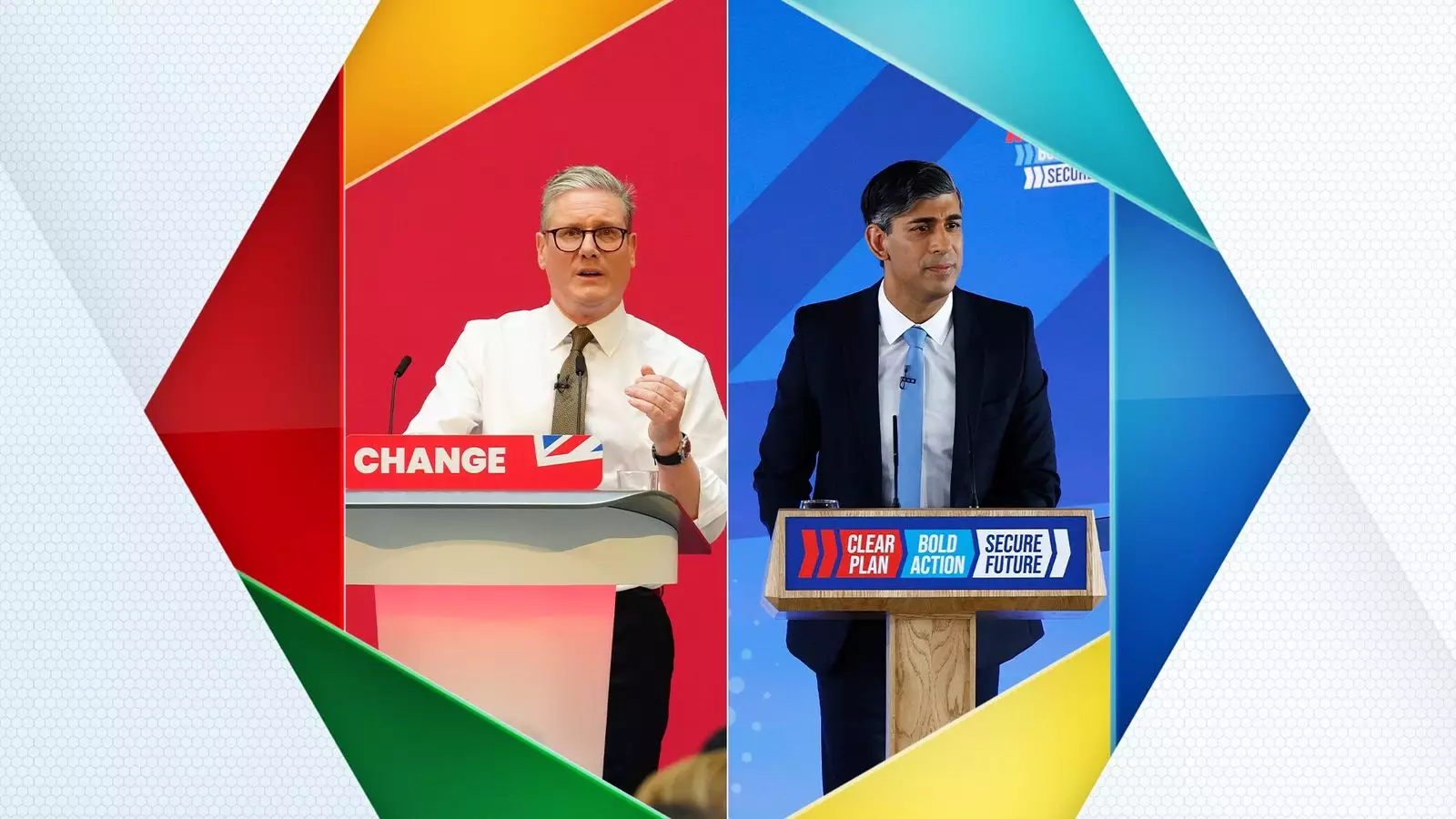The Institute for Fiscal Studies (IFS) has criticized both major political parties, the Conservatives and Labour, for not providing clear information on how they plan to fund their spending commitments. The IFS described the information presented to voters as “thin gruel”, highlighting a lack of transparency in addressing crucial challenges such as reducing NHS waiting lists. This “conspiracy of silence”, as the IFS director Paul Johnson puts it, raises concerns about the sustainability of public services in the next parliament, warning that cuts may be inevitable unless government debt increases or taxes are raised.
Government debt has reached a 60-year high, with a near-record tax burden adding to the financial pressures. Mr. Johnson pointed out a significant increase in debt interest spending and a growing welfare budget due to the COVID pandemic and cost of living crisis. Despite rising health spending, a potential growth in the defence budget, and the need for a transition to net zero, political manifestos have failed to address these critical issues. The lack of acknowledgment of these challenges presents a concerning picture for the public finances.
In their manifestos, neither the Conservatives nor Labour have proposed significant new tax increases to address the financial challenges ahead. Mr. Johnson criticized both parties for silence on a potential £10 billion a year tax rise through further freezes to personal tax allowances and thresholds. The unwillingness to confront the reality of tax increases demonstrates a failure to address the financial implications of their spending commitments. This lack of transparency raises questions about the feasibility of their economic plans.
The IFS noted that the Liberal Democrats have more extensive tax and spend policies compared to Labour and the Conservatives. However, it also highlighted that parties like Reform UK and the Greens have proposed unrealistic policies that would be unattainable in practice. This unrealistic approach to tax and spending policies has been described as “poisoning the entire political debate” by Mr. Johnson. The lack of practical solutions from these parties adds to the complexity of the economic challenges faced by the country.
The challenges ahead, including high taxes, increased debt, and struggling public services, require a more transparent and realistic approach from political parties. The pressures from health, defence, welfare, and demographic changes are significant, and ignoring these challenges will only make the situation worse. It is crucial for political parties to address these issues openly and provide concrete solutions rather than avoiding them. The lack of transparency in funding commitments poses a significant risk to the country’s economic stability and overall well-being.


Leave a Reply